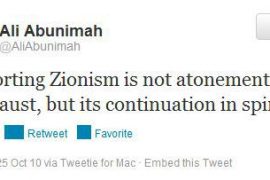1) At the Spectator, Stephen Daisley explains ‘What the BBC gets wrong about Israel’.
“If you get your news on the Middle East from the BBC, every so often Israel appears to go mad and begins lustily bombing Palestinian civilians. No rhyme or reason. Jerusalem is simply pummelling Gaza for the hell of it.
This impression is often created by the BBC’s approach to reporting on Israel and terrorism. The story invariably begins when Israel responds to attacks, with those original attacks deemed insufficiently newsworthy until then or reported as a retaliation to some provocation. Then, once Israel engages, the inciting incidents are quietly smuggled into the coverage but framed as just another round in the cycle of violence. Thus self-defence is cast as aggression, and aggression as tit-for-tat.”
2) The FDD’s Jonathan Schanzer looks at ‘Iran’s Multifront Strategy Against Israel’.
“Rockets from Gaza flew toward Tel Aviv on May 10, only a few weeks after Israel celebrated its 75th anniversary. Against all odds, the country has survived despite multiple wars with its neighbors, a dearth of natural resources, and countless other challenges. But the rockets are a reminder that there are no permanent victories in the Middle East. Only permanent battles. There is a real possibility that Israel will be facing a serious war with enemies coming at it from various sides for the first time in nearly half a century—one coordinated out of the Islamic Republic of Iran, but fought along Israel’s borders by Tehran’s terror proxies.”
3) At the MirYam Institute, Yaakov Lappin discusses ‘Hamas’s Al-Arouri and The Iranian Connection’.
“Hamas’s deputy political bureau chief, Saleh al-Arouri, currently based in Lebanon, is interested in surrounding Israel with rocket and terror bases, and so is Iran.
That common interest has enabled al-Arouri to create new levels of cooperation between his Sunni-Islamist terror faction and the radical Shi’ite regime in Tehran.”
4) The Algemeiner reports on an EU resolution concerning aid to the Palestinian Authority.
“The European Parliament on Wednesday passed a resolution calling on the European Commission to suspend aid to the Palestinian Authority’s educational system until antisemitic and violent themes are removed from textbooks issued to K-12 students.
The resolution, passed with 421 yes votes with 577 members of parliament participating, “deplores the problematic and hateful material in Palestinian school textbooks and study cards which has still not been removed” and noted that the content is influencing a rise in terrorist activity among Palestinian teenagers.”



